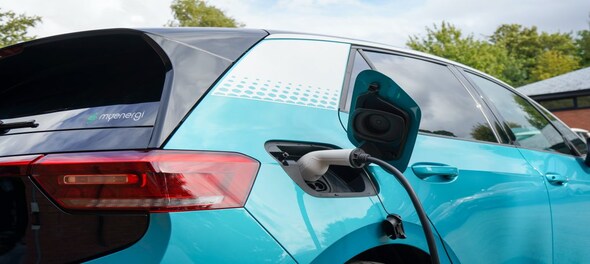
The Indian automotive industry is the fifth largest in the world and is slated to be the third largest by 2030, according to a report by India Brand Equity Foundation.
The sector has been very active in bringing EV revolution in India. The government's push for EV adoption with help of FAME II subsidies has resulted in massive growth in the segment over the past year. According to Society of Manufacturers of Electric Vehicles (SMEV), India bought more electric vehicles in 2021 than what was purchased collectively in the past 15 years.
With the 2022 Budget announcement around the corner, the automotive industry is expecting change and support from the government for the industry to grow.
From bringing EV financing under priority sector lending to revoking 28% GST on auto components, here are the key expectations of the sector:
Amit Gupta, CEO & Co-founder, Yulu: “We urge the government to extend the FAME II benefits to ‘Low Speed EVs’ as they are safe, affordable & will accelerate mainstream adoption of EVs. Secondly, Battery is at the heart of EV success, so incentives for swapping infrastructure, like Battery-as-a-service (BaaS) in FAME II is an urgent need as well. Incentivising localised production and having a flat 5 percent GST regime for the entire EV supply chain will bring down the costs and de-bottleneck supply side which is needed to ensure long-term advantage.”
Also read:
Shubhankar Chaudhry, CEO, One Moto India: "To create a robust ecosystem for Electric Vehicles and give a boost to the EV market, the Indian government should focus on putting EVs in the priority lending sector, as currently very few NBFC’s and financial institutions are providing affordable lending to potential end-users as well as fleet operators. Additionally, the government also needs to push for more R&D in affordable and indigenous battery technology development, which currently is the biggest pain-point for EV players. Our current dependence on lithium imports, of which 90 percent is dominated by Chinese players, is a strategic disadvantage for Indian EV manufacturers."
Sujata Pawar, Co-Founder & CEO, Avni: "The government should come up with subsidies on eco-friendly products in all categories, and also encourage entrepreneurs to work towards organic replacements of various products. Lenient taxation could be looked at to promote the adoption of organic products by the end consumers too."
Also read: Views: The wheels to drive EV adoption
Jyotiranjan Harichandan, Co-founder, BOLT: “The government has already made progressive policies to de-license setting up of charging infrastructure. This will give rise to small entrepreneurs who can have EV charging stations. But the basic foundation that needs attention is to have access to seamless non-stop electricity, which is our core resource. This will need quick heavy upgrading of the electricity infrastructure, specially towards residential areas as most of the charging will happen there. We want the infrastructure to grow faster if not at the same pace and to remove as many barriers to EV adoption as we can.”
Akshay Singhal, Founder, Log 9 materials: “We hope to see the FAME Subsidy corpus extended to EV retro fitment kits. Additionally, more R&D incentives should be given for energy storage and EV technology-related developments in India, as well as R&D investments made into local technology developments, which should be made 100% adjustable against corporate taxes.”
Deepak MV, CEO & Co-founder, Etrio: "The Government should make the EV sector a priority lending sector for the financial institutions. Additionally, reducing the GST taxation on lithium-ion batteries, and EV spare parts and components can also be a great step forward from the EV manufacturing and OEM point of view. The government must also come up with additional sops or incentives for the nation’s fleet aggregators to switch entirely from internal combustion engines to EVs in order to pave a sustainable and zero-emissions future. Last but not the least, we also hope that this Budget answers the need for revitalizing the B2B retrofitment (ICE to EV conversion) space pan-India by bringing retrofitment under the ambit of FAME-II."
For all the Budget 2022 related news, click here.
Check out our in-depth Market Coverage, Business News & get real-time Stock Market Updates on CNBC-TV18. Also, Watch our channels CNBC-TV18, CNBC Awaaz and CNBC Bajar Live on-the-go!


BJP holds meeting in Delhi as polling underway for 5th phase
May 20, 2024 4:21 PM
UP Police arrests man after viral videos shows him voting multiple times
May 20, 2024 2:18 PM

